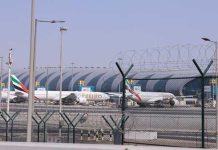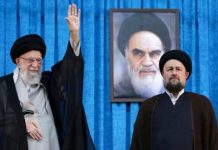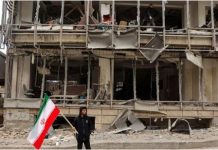The speaker highlighted the challenges faced by the Southeast Asian region (SEA) including unemployment, economic recession, climate change, frequent weather events, socio-economic gaps, income disparity, and military tensions
DNA
JAKARTA: “The emergence of Indonesia as a ‘Middle Power’ in the Indo-Pacific is an excellent example of proactive diplomacy marked by constant attempts to improve collaboration, maintain peace, and promote multilateralism while upholding democratic values and human rights”.
This was stated by Spica A. Tutuhatunewa, Director of Center for Foreign Policy Strategy for America and European Region, Foreign Policy Strategy Agency, MOFA Jakarta, when giving his lecture on the topic of Indonesia’s Rise of as Middle Power and its Global Leadership. She was speaking at the 11th session of the OIP which is being jointly organized by the Indonesian Embassy and the Bahria University, Islamabad.
At the session, the participants gained knowledge about Indonesia’s foreign policy strategies as middle power driven by its resource availability and strategic environment among other leading by example on specific issues, acting as a bridge builder, and building coalitions beyond regional diplomacy to strengthen multilateralism.
“We were living in a world where changes occur much more often than before and require continuous analysis and evaluation, we are not able to unambiguously predict and prioritize factors that may influence the situation, the information is difficult to interpret unequivocally and the past experiences were not applicable to explain new events” she said while sharing her insight on the current global challenges.
The speaker highlighted the challenges faced by the Southeast Asian region (SEA) including unemployment, economic recession, climate change, frequent weather events, socio-economic gaps, income disparity, and military tensions. She also highlighted the growing complexity of the Indo Pacific region, with flash points like Taiwan Straits, South China Sea, and Korean peninsula.
Discussing Indonesian diplomacy and leadership she said that as a middle power Indonesia was bridge builder and net contributor to peace and stability. Geography, demographic dividend, democracy and economic capabilities were its strategic assets and the country was capitalizing on these strategic trust with reviving multilateralism and respect for international law and principles. She also informed that Indonesia was the chair of ASEAN and MIKTA in 2023 while it had G-20 Presidency in 2022.
She informed that new indicators measuring patterns of diplomatic engagement show the country of 270 million to be among the region’s most diplomatically active players.
“Free and Active Policy was not necessarily neutral because no country could live in isolation. While describing the Indonesian foreign policy, the speaker said that Indonesia has (4+1) priorities namely Economic Diplomacy, Protection of Indonesian abroad, sovereignty, regional and global contribution and leadership and strengthening diplomatic infrastructure, she emphasized.
“Indonesia’s geo-strategic position and extensive diplomatic networking with neighboring and extra-regional powers make Indonesia an important contributor to dealing with challenging global issues” the speaker pointed out.
According to the Lowy Institute Power Index 2023, Indonesia is one of only six Asian countries to have had an increase in its overall index of exerting influence in international politics. These strong credentials make Indonesia an important global player with significant influence at international Forums.
Indonesia, a historically non-alignment nation faces tough challenge because of the increasing geopolitical tension between the US and China. It emphasizes the importance of ASEAN and multilateral institutions like the G20 and UN in navigating geopolitical tensions. During the G20 summit, Indonesia provided a platform for US, Chinese, and Russian leaders to interact and mediate their conflicts, allowing it to play a strategic role.
In the Q&A session the speaker informed the participants that, since 1998, Indonesia has implemented democratic reforms, eradicating corruption, and limiting presidential terms to 10 years. As of April 2023, it ranks 8th in UN peacekeeping missions which is also mandated by its 1945 Constitution. The session also discussed potential cooperation in the digital economy and small and medium enterprises policy, comparative political models, and sharing best practices for holding elections.

















